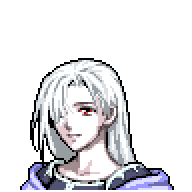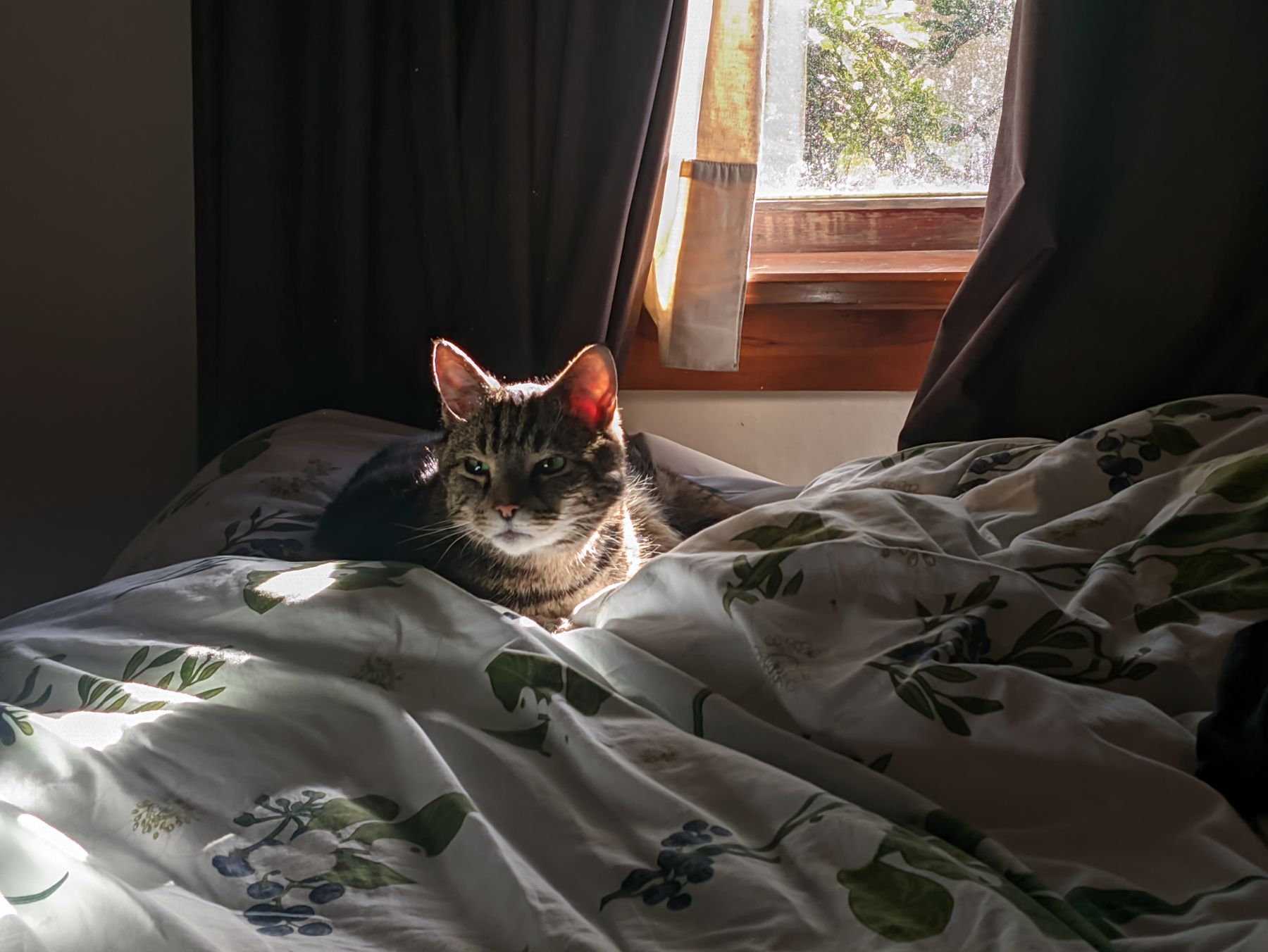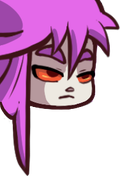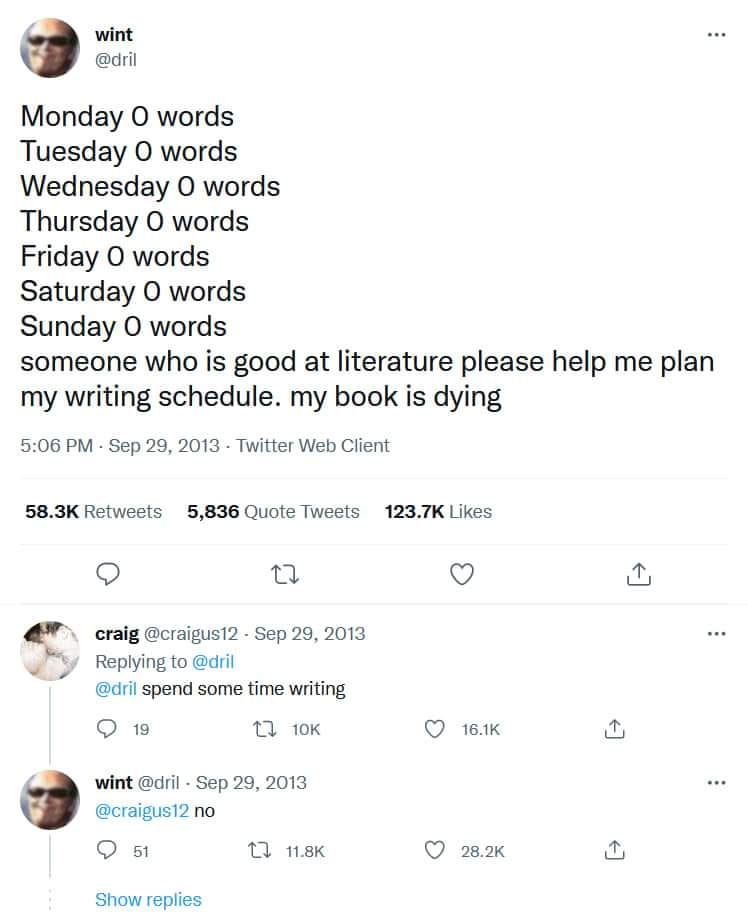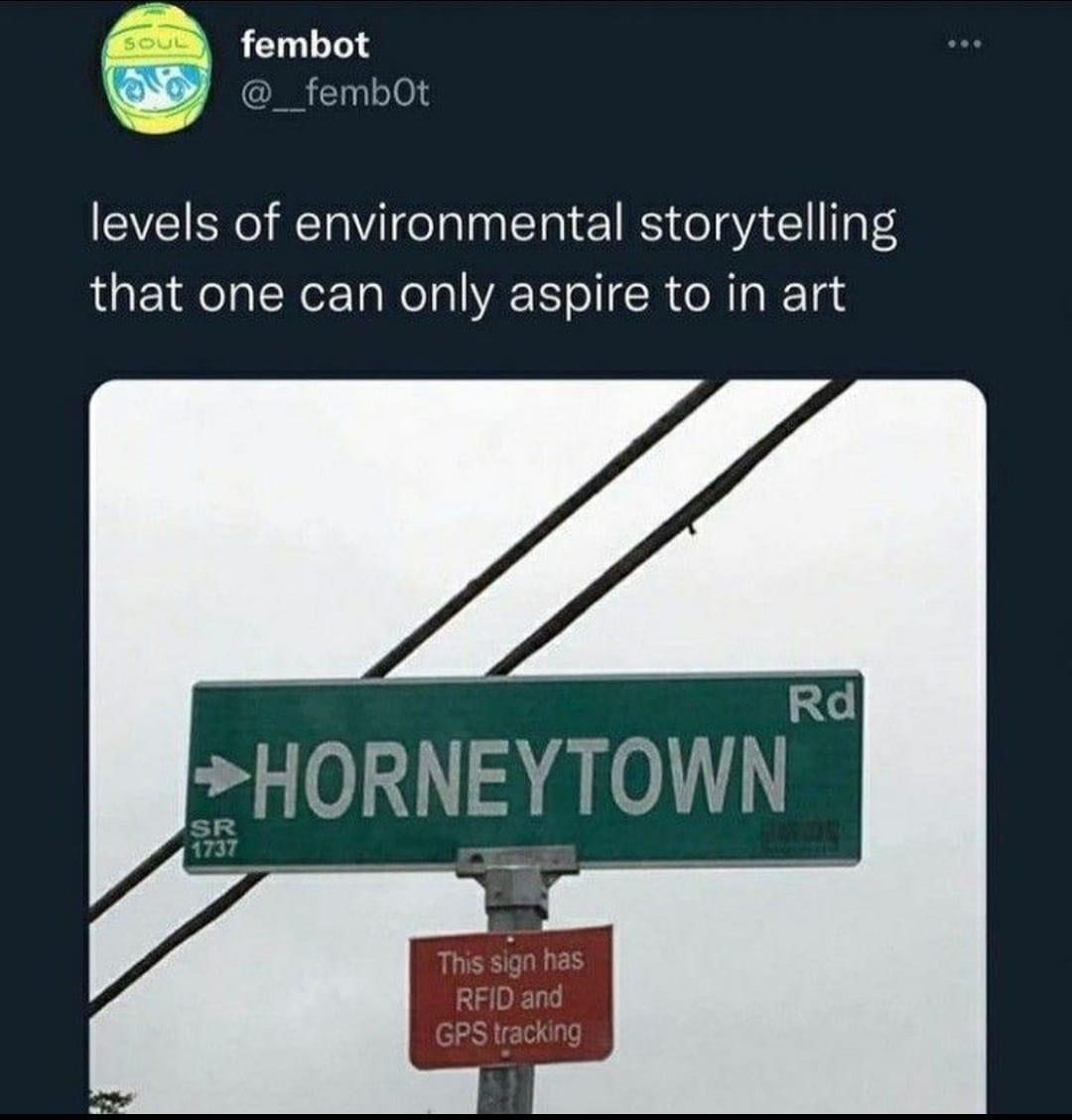Hexbear doesn't usually feature a lot of fiction, so I'm just going to post this and see where it goes. If people are into it, I'll keep posting here. If I don't get much of a response, I'll stop. I think in general people (meaning: me) would rather read novels on paper. I've published and self-published novels before, and I'm currently submitting this trilogy to publishers. One way or another it will be published and available on paper—it took me two years to write, and I want to at least be able to hold it in my hand—but at the moment it's just available electronically. The whole thing is available for free here, and anyone who wants an .epub should shoot me a message, and I'll give you a dropbox link for free. I'm not charging anything at the moment because I'm more interested in becoming better known as a writer of communist fiction.
The story: it's Jumanji in Byzantium. Four high schoolers stuck in detention get teleported to 11th century Byzantium. They change races, genders, and classes along the way, and are forced to take different positions in a slave uprising—some supporting it, others fighting it or caught in between. The jock becomes a general, the overachieving know-it-all becomes a rogue merchant, the activist becomes a rebellious princess, and the nerd becomes "the one." This is a gamelit novel, so in some parts it reads like a video game. It's also a fantasy novel which draws a lot of inspiration from Crouching Tiger, Hidden Dragon, as well as dialectical materialism. Additionally, it's a historical fictional novel that I spent so much time researching (I've been a little obsessed with Byzantium for decades). My goal was to show how exploited people in truly desperate circumstances can build a new society, but also to show how changes in environment and context can change some character traits in people while also intensifying others. And, of course, I wanted to write something fun.
So without further ado, if you're still reading, here's the first chapter (CW, the jock says a few racist, sexist, ableist things):
spoiler
BYZANTINE WARS
CHAPTER 1: THE GAME
Julian Torres was transported to another world on the most unremarkable day imaginable. He had just been sentenced to detention at Pemetic High on a bleak winter afternoon in Maine. According to Vice Principal Ross, some people had spray-painted graffiti on the maintenance shack by the baseball field, and Torres was the main suspect. Now he was slumping behind a desk in a dusty, forgotten classroom on the second floor. Miss Ross had even confiscated his phone.
This is totally unfair, Torres thought. She didn’t even have any evidence!
The school buses roared away from the campus, bringing hundreds of students past piles of snow and along dirty roads to their homes—to food, drink, and video games. Torres was a huge fan of Fourteen Nights, and wanted to get back to his bedroom so he could play. Instead, he was stuck here.
Several other students joined him. First came Austin Boucher, a tall muscular football player who threw himself into a seat at the back of the classroom.
“Are you in for the graffiti?” Torres said, turning around to face him.
“Don’t talk to me,” Boucher said.
Okay. Torres looked back ahead.
Next came Helena Lee, a small thin overachiever. She greeted Torres, sat nearby, and retrieved a calculus textbook from her backpack. Both she and Torres had the same AP Physics class, but she was one of the few students who understood the subject. It was unusual for Miss Ross to sentence a future valedictorian to detention like this.
“Graffiti?” Torres said.
Lee looked at him. “When I get my phone back I’m going to have my dad complain to the school.”
“Daddy’s girl,” Boucher said.
Lee scowled at him. “Aren’t you supposed to be throwing footballs and giving yourself brain damage or something?”
“What?” Boucher looked around and crossed his eyes. “I don’t know. Where am I? Who am I?”
“Miss Ross must just be tossing random people in here to fill up her quota,” Torres said.
“It’s completely ridiculous,” Lee said.
The last to enter was Darius Jackson. He and Torres hung out at chess club and were taking a media studies class together. Jackson waltzed over to Torres, spun around, and sat beside him.
“She got you too, huh?” Jackson said. He spoke with a faint accent; his family had moved from Jamaica to Maine a few years ago.
Boucher glared at them. “Both of you shut up. This shit’s bad enough without listening to you losers flirt with each other.”
Jackson stood, but Torres pulled him down, shaking his head. “We’re already in enough trouble.”
“Yeah, that’s what I thought.” Boucher reclined in his seat and pulled his baseball cap over his eyes.
Lee sighed, retrieved a notebook from her backpack, and put on noise-canceling headphones. Within moments she had lost herself in calculus.
Such a know-it-all, Torres thought. But that’s her way of escaping this place. The three of us could take down Boucher and maybe even Miss Ross if we worked together, but we’re all caught up in our own little worlds.
Part of him wanted to ask Helena for her phone number. He had always admired how studious she was, and thought she was pretty. But Torres was insecure about his appearance—he was pudgy, unfashionable, and had braces and acne—and he got mediocre grades. Why would she be interested in him?
Jackson, meanwhile, had pulled a book called Wretched of the Earth from his backpack. He started reading.
“Nerd,” Torres whispered.
“A few more books and a few less video games would probably do you good, son,” Jackson answered, patting Torres’s back.
Torres rolled his eyes. “This is just like The Breakfast Club.”
“What’s The Breakfast Club?” Jackson said.
“It’s like a club,” Torres said. “Where you have breakfast.”
“Isn’t it some Tarantino movie where everyone kills each other in the end?”
“No, it’s a movie from the eighties about a bunch of kids trapped in detention.”
“Oh, okay. Yeah, this is kind of like that, I guess.”
Silence. Torres stared into space.
Jackson looked at him. “You’re just going to sit there?”
“I’m doing white lady yoga.” Torres raised his hands and held his middle fingers to his thumbs. “I’m meditating.”
Jackson laughed. “Meditating on what?”
“How this school needs a lawsuit or something for throwing random people in detention like this,” Torres said.
“That’s just more of your California dreaming,” Jackson said. “Forget it, Jake. It’s Maine.”
Jackson constantly made fun of Torres because he was from California, and thought Torres’s entire family was nuts for exchanging a lifetime of perfect weather for Maine’s bleak winters, muddy springs, and touristy summers. But in a way, Jackson was no better, since his family had left the green Caribbean paradise of Jamaica for the same thing. Jokes about ganja and reggae were inevitable in response, but Jackson had little interest in either.
Soon he was just as absorbed in his book as Helena was in hers. Torres got started on his Chinese homework. He was doing an independent study on the language, and loved how people still used these prehistoric symbols in the modern world. It was so fascinating how each word was a mix of sounds and ideas. Plus, if you screwed up the stroke order, your writing would be unreadable, so you needed to learn the way people thousands of years ago wrote and thought. The Chinese word for beautiful, for instance, was a man wearing a goat headdress, although to Torres the image looked like a centipede.
To each his own, he thought.
“Can’t even take a nap in this place,” Boucher said.
Pushing back his baseball cap, Boucher sprung up from his seat and wandered the classroom. For a minute he did pushups on the floor near Lee, clearly trying to impress her, but she ignored him. Torres watched out of the corner of his eye, and silently counted. Boucher finished at fifty pushups.
I can do maybe ten, Torres thought.
At the back of the classroom, Boucher tried to open a locked door labeled NO ENTRY.
“It’s locked for a reason,” Lee said.
Boucher glanced into the silent hallway for a moment, then returned to the closet door and—just as Lee was removing her headphones and telling him to stop—threw his weight onto the handle, busting it open.
Behind the door was absolute void.
“Jesus Christ, come on, man!” Torres said.
“Like a bull in a China shop,” Jackson said.
Boucher stepped back from the void, staring at it. Wind gusted through the windows and lifted the cobwebs tangled in the classroom’s corners.
“Creepy,” he said.
The closet seemed to absorb all the light in the world. Boucher stepped inside the dark, feeling the haze with his hands.
“Now’s our chance,” Jackson whispered to Torres. “Maybe we can push him in and lock the door.”
“He literally just broke the lock, dude,” Torres whispered back. “And he’s the size of a tank. A minute ago he did fifty pushups!”
“You don’t always have to be such a coward, Julian.”
Torres frowned. “Seriously?”
“Yeah, seriously.”
“I’m a coward because I just want to get through the next hour without losing my teeth.”
“Don’t worry,” Jackson said. “Those braces of yours will protect you.”
“I’ve had them for two years,” Torres said. “I don’t want to get stuck with them for a second longer than I have to.”
“Nothing’s in here,” Boucher said from the closet.
“Great,” Helena said. “Now can you come back and close the door before all of us get in even more trouble?”
“Nope,” Boucher said.
Lee groaned. “Next time I’m asking Miss Ross if I can do detention in a classroom by myself.”
Jackson looked at her. “That might affect your permanent record. And then who knows? Harvard might not let you in.”
“At least I’m actually applying to colleges,” Lee said.
Jackson stared at her, unable to think of a comeback.
Torres pointed at Jackson. “Oh! She got you, dude!”
“I’m actually applying to lots of schools,” Jackson said to Torres. “Like the University of Kiss My Ass. It’s in Kiss My Ass, Florida. Ever heard of it?”
“The only thing any of us have heard of is your mom,” Torres said.
Jackson shook his head. “I still can’t believe people here talk like that. Where I’m from you’d get knifed for saying anything about people’s moms.”
“Well Toto, I don’t think we’re in Jamaica anymore,” Torres said.
“Yeah, you can say that again.” Jackson looked at the depressing linoleum classroom and the fluorescent lights that weren’t even turned on. Outside the windows it was already getting dark, even though it was barely past three in the afternoon.
Boucher, meanwhile, had been feeling along the closet’s edges. He withdrew a dusty wooden box. It resembled an ornate chess set.
“What’s this?” He showed the box to Lee. “Can you read this shit? It looks Chinese.”
“I’m Korean,” she said.
“From North Korea?”
Helena rolled her eyes. “I’ve never heard that joke before.”
“All Asians look the same to me,” Boucher said.
Helena tensed her muscles and glared at him. Jackson shook his head.
“Don’t talk to her like that,” Torres said.
Boucher shoved the box in his face. “Then you tell me what it says, genius.”
A word was carved into the box’s underside. The letters looked Greek to Torres, but he had never learned to read that language.
“It says ‘Byzantium,’” Jackson said. “But it’s written in English. The font is just kind of Greek-themed or something—”
“What’s Byzantium?” Boucher said.
“The Eastern Roman Empire,” Jackson said. “Think Ancient Rome, but medieval, and located mostly in what we call Turkey today. Obviously.”
“No need to show off,” Torres said.
Jackson smiled at him. “There’s always a need to show off.”
Helena put on her headphones and returned to her textbook.
“Byzantium,” Boucher said. “Weird word. Never heard of it. Any of you nerds wanna play a round of Byzantium?”
Torres shook his head. “No.”
But the truth was, Torres was tempted; he just didn’t want to play with Boucher. Torres loved any kind of game, not just video games or chess. He also played poker so much that Jackson joked that he was going to move to Las Vegas and become a professional poker player after graduating high school.
“I don’t know why you think that’s so funny,” Torres had said. “Poker requires, like, real understanding of emotions. You really need to know how to read people.”
“All you need to know how to do is find more burgers and credit cards,” Jackson had answered.
Boucher opened the box. Inside was an old booklet made of parchment, or something like it. There were also four silver figurines. The first had a long thin sword. The second was riding an armored horse. The third raised her arms in some kind of Kung Fu pose. The fourth had drawn what looked like a clunky, old-fashioned flintlock pistol, the kind that fires one shot at a time.
Boucher shook his head. “Lame ass game.”
“It’s like medieval Monopoly,” Jackson said.
Opening the booklet, Boucher found a page near the front explaining the pieces.
“This one’s the general.” He picked up the horse and the rider. “Me, in other words. And this one’s the swordsman—of course.” He placed the man armed with a sword on Torres’s desk. “Here’s the princess. Perfect for you.” He gave the woman to Jackson. “And finally the rogue, whatever that is.” He gave the last piece to Helena, who was too busy scrawling abstruse symbols in her notebook to notice.
“Let’s play,” Boucher said. Without waiting for an answer, he pulled three desks together and gestured for Torres and Jackson to join him.
The two acquaintances glanced at each other, but remained in their seats.
“Get over here,” Boucher growled.
“Why should we?” Torres said.
“Because we can kill him.” Jackson got up and joined Boucher. “In the game, of course.”
Torres watched Jackson for a moment, then followed.
Apes together strong, he thought.
“‘It is a chaotic time for Byzantium,’” Boucher said in a dramatic voice, reading from the booklet.
“Check it out.” Jackson indicated Boucher. “He can read.”
“Shut up,” Boucher said. Then he continued. “‘A peasant uprising has spread across the land, and the emperor has dispatched armies to crush it. But some have organized to fight back. Among these is Princess Herakleia.’” He nodded to Jackson. “You, in other words.”
Jackson met his gaze without flinching. “Is that supposed to be an insult? You think it’s funny I’m a woman in the game?”
“Yeah,” Boucher said.
“Is it funny that your mom’s a woman?” Jackson said.
“Don’t talk about my mom,” Boucher said.
“See?” Torres said to Jackson. “Talking about people’s moms can actually be useful.”
“Let’s go, momma’s boy,” Jackson said to Boucher. “Let’s see how tough you are.”
“After the game,” Boucher said.
Jackson looked at Torres. “The reactionary is a paper tiger.”
“‘Returning from a journey to faraway lands,’” Boucher continued, reading from the booklet, “‘Princess Herakleia plans to teach the people’s armies new and mystical fighting techniques. Pursued by the Roman legions, she races home so she can free the people from slavery—and so that they, too, can save her.’ Sounds boring and political.”
“‘I don’t like politics in video games,’” Jackson said, imitating Boucher’s deep voice.
Boucher clutched his head and groaned. “Argh, what else am I going to do without my phone?”
“How do you play?” Torres snatched the booklet. “I’ve never heard of this game. It sounds like Dungeons and Dragons, but the character classes are a little different, and tabletop RPGs aren’t usually set in Byzantium.”
“Gee, I wonder why,” Jackson said. “Don’t they usually take place in like this fantasy version of Western Europe? With like this weird race reification thing going on with goblins and dwarves and elves? Or is the whole story just about squabbling nobles, grimdark ultraviolence, morally gray characters, and weird rape fantasies, and does it completely ignore everyone else?”
“Sounds right up my alley,” Boucher said.
“No one forced you to open that door,” Torres said. “Did you ever think that maybe it was locked for a reason? Do you ever think at all?”
Boucher lunged at Torres, who ducked out of the way.
“Look,” Torres said. “Do you want to play or don’t you?”
“I want to play,” Boucher said.
“Alright, then let me read,” Torres said.
“Let me read,” Jackson sang, suddenly playing air guitar. “Read in here!”
“Gameplay looks pretty standard,” Torres said. “Each character has different traits, strengths, and weaknesses. Dice rolls help determine a lot of what happens. The game isn’t perfectly historical. It’s like a historical fantasy, even if there’s some historical precedent for its ideas, like these longshoremen called Zealots who took over some city called Thessaloniki and made a workers’ republic for a few years in the fourteenth century. Only—this is weird.”
“What?” Jackson said.
“Usually there’s a dungeon master,” Torres said. “Someone to kind of guide the game along. It’s almost like a story we all tell together and play together. But there needs to be someone sort of outside the action and, like, kind of guiding everything.”
“So then how does the game work?” Jackson said.
Torres shrugged. “I don’t know. It just says don’t start unless you want to finish, and you win by beating the emperor and destroying the empire.”
Boucher flipped the game board over. The other side was a carved wooden fantasy-style map.
“It looks like modern Turkey,” Jackson said. “Back then I guess they called it Byzantium.”
“Actually, they called it Romanía,” Lee said, pulling off her headphones.
“Like the country in Eastern Europe?” Jackson said.
“Similar name, different thing,” Lee said.
“How do you know that?” Jackson said.
“You think Asians only know about math and martial arts? There’s a lot about me you don’t know.” Lee put her headphones back on.
Torres, Boucher, and Jackson looked at each other, then turned to the game board. The map was divided into provinces. These were connected by winding roads and dotted with cities labeled in that difficult Greek font. (Torres could make out the word “Konstantinopolis” for Istanbul.) A lot of detail was on the map, too. Islands sprinkled the seas, farmland checkered the coasts, and the interior was mountainous and dry—turning to a vast desert in the southeast, and an endless forest in the northwest. Strange animals were also present—ants the size of buses, Mongolian death worms, Chinese water dragons, Japanese skeletons as large as mountains, shapeshifting ghouls, and other creatures Torres had never seen.
“How do we start?” Boucher said.
“It says we have to roll the dice to see who goes first,” Torres said.
Boucher seized the dice, but winced. “Damn, they’re heavy.”
He handed the dice to Torres, who almost dropped them. Somehow each dice possessed the weight of a mountain. Rapidly he gave them to Jackson.
“Weird.” Jackson returned the dice to Boucher, who hefted them in his hand, his muscles straining.
“If you want to start,” Torres said, “you have to roll the dice.”
Trembling, Boucher lowered his hand and then dropped the dice onto the board. The rattle was thunderous, and made the chairs in the room tremble.
Helena Lee pulled off her headphones and glared at them. “Can you guys please do that more quietly?”
No one was paying attention to her. The board had come alive.
